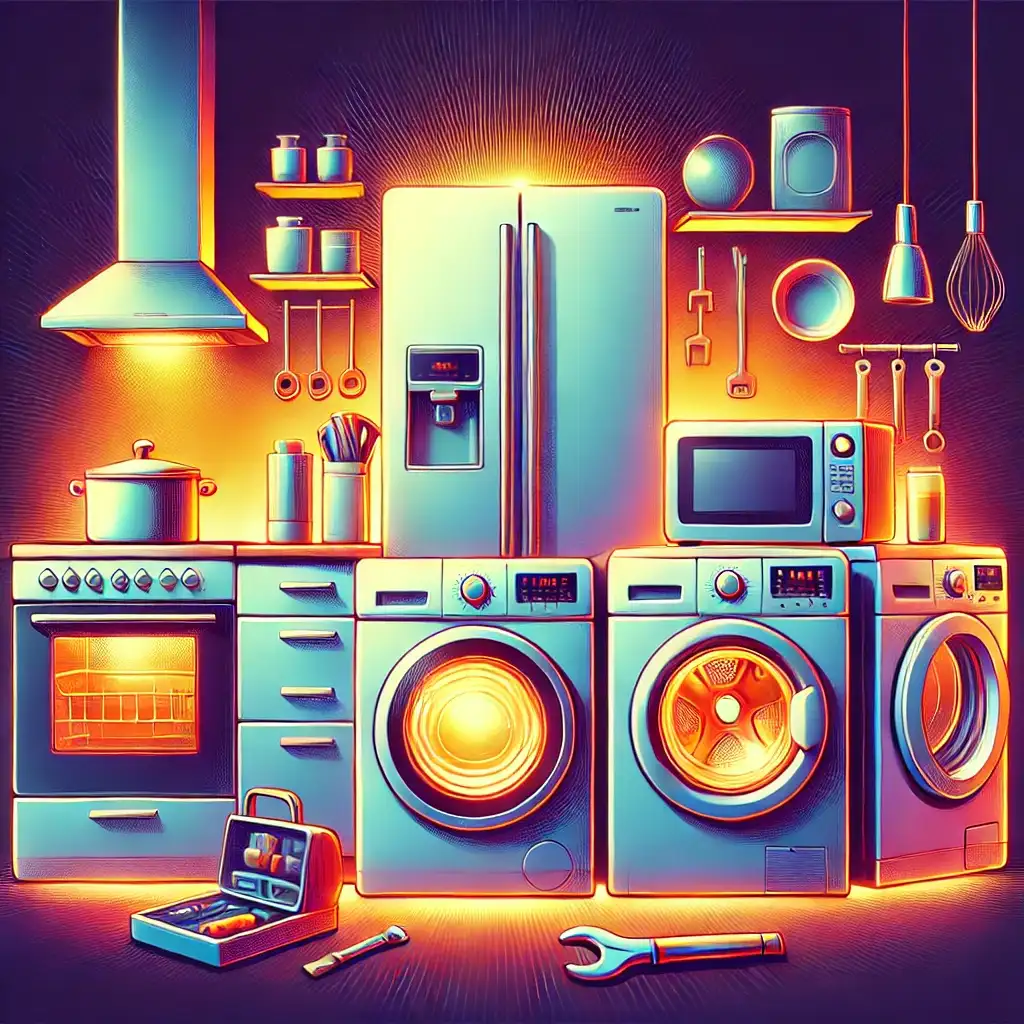Introduction
Home appliances are the backbone of modern living, making our lives easier and more efficient. But what happens when they break down unexpectedly? The frustration is real, but the solution doesn’t always have to involve a costly repair service. With a little know-how, you can troubleshoot and fix many common appliance problems yourself.
In this comprehensive guide, we’ll walk you through troubleshooting tips for popular home appliances, answer FAQs, and provide actionable strategies to keep them running smoothly. Let’s dive in and bring your appliances back to life, even if you’re facing issues like your microwave not heating!
Common Troubleshooting Tips for Home Appliances
1. Refrigerator Not Cooling Properly
Problem: Food spoils quickly, and the fridge feels warm.
Causes:
- Dirty condenser coils.
- Faulty thermostat.
- Blocked vents.
Solution:
- Clean the condenser coils at least twice a year.
- Check and adjust the thermostat settings.
- Ensure vents inside the fridge are unobstructed.
Pro Tip: Keep your refrigerator away from heat sources like ovens to maintain optimal efficiency.
2. Washing Machine Won’t Drain
Problem: Water pools in the drum after the cycle ends.
Causes:
- Clogged drain hose.
- Malfunctioning pump.
- Blocked filter.
Solution:
- Check and clean the drain hose for obstructions.
- Inspect and clean the pump filter (usually located at the bottom front of the washer).
- If the issue persists, replace the pump.
Did You Know? Front-load washers use 40% less water than top-load washers, making them eco-friendly and cost-effective.
3. Oven Fails to Heat
Problem: The oven doesn’t reach the desired temperature.
Causes:
- Defective heating element.
- Malfunctioning temperature sensor.
- Poor calibration.
Solution:
- Inspect and replace the heating element if necessary.
- Test the temperature sensor using a multimeter.
- Refer to your appliance manual for calibration instructions.
Quick Fix: Use an oven thermometer to double-check the actual temperature.
4. Dishwasher Leaves Dishes Dirty
Problem: Dishes come out unclean or with residue.
Causes:
- Clogged spray arms.
- Low water temperature.
- Overloading the dishwasher.
Solution:
- Clean the spray arms and filters regularly.
- Run hot water in the sink before starting the cycle to boost the dishwasher’s water temperature.
- Avoid overloading by arranging dishes correctly.
Stat Alert: Dishwashers use approximately 5 gallons of water per cycle, compared to 27 gallons when washing by hand.
5. Dryer Takes Too Long to Dry Clothes
Problem: Clothes remain damp after a full drying cycle.
Causes:
- Lint buildup in the filter or vent.
- Faulty heating element.
- Overloading the dryer.
Solution:
- Clean the lint filter after every load and inspect the vent for blockages.
- Check the heating element and replace it if damaged.
- Reduce load size for efficient drying.
Safety Tip: Clogged dryer vents are a leading cause of house fires. Regular cleaning can prevent this.
Frequently Asked Questions About Appliance Troubleshooting
Q1: How often should I clean my appliances?
Regular maintenance is crucial. For example:
- Clean refrigerator coils biannually.
- Empty the vacuum cleaner’s filter monthly.
- Descale coffee makers every three months.
Q2: Are extended warranties worth it?
If you own high-end appliances or multiple units, an extended warranty can save significant repair costs over time.
Q3: Can I troubleshoot appliances without tools?
Basic tools like screwdrivers, pliers, and a multimeter make troubleshooting easier. However, many issues, such as cleaning filters or checking plugs, don’t require specialized tools.
Q4: What should I do if my appliance emits a burning smell?
Immediately unplug the appliance, inspect for visible damage, and avoid using it until a professional inspects it.
Q5: Why do appliances break down so often?
Overuse, poor maintenance, and power surges are common culprits. Regular cleaning and maintenance can extend their lifespan.
Strategies to Prevent Appliance Breakdowns
- Follow the Manual: Always read the user manual for proper usage and care instructions.
- Use Power Surge Protectors: Safeguard appliances from voltage fluctuations.
- Don’t Overload: Overloading reduces efficiency and can damage the appliance.
- Schedule Regular Maintenance: Professional servicing can detect and fix minor issues before they escalate.
- Use High-Quality Detergents: For washing machines and dishwashers, opt for recommended cleaning agents to avoid residue buildup.
Conclusion
Troubleshooting home appliances may seem daunting at first, but with these practical tips, you can diagnose and resolve common problems like a pro. Regular maintenance, a little patience, and attention to detail can save you from expensive repair bills and keep your appliances running smoothly for years to come.
Hi there! I’m Ethan Thompson, a passionate writer specializing in kitchen technology, with a particular love for microwaves. My mission is to guide you in finding the best microwaves and accessories to make cooking faster and easier.
When I’m not writing about microwaves, I’m busy exploring new kitchen tools and discovering innovative cooking shortcuts. On Riavt, you’ll find honest reviews, expert tips, and practical advice to help you unlock your microwave’s full potential.
Join me as we transform your kitchen experience with insights that make cooking simpler and more enjoyable!

